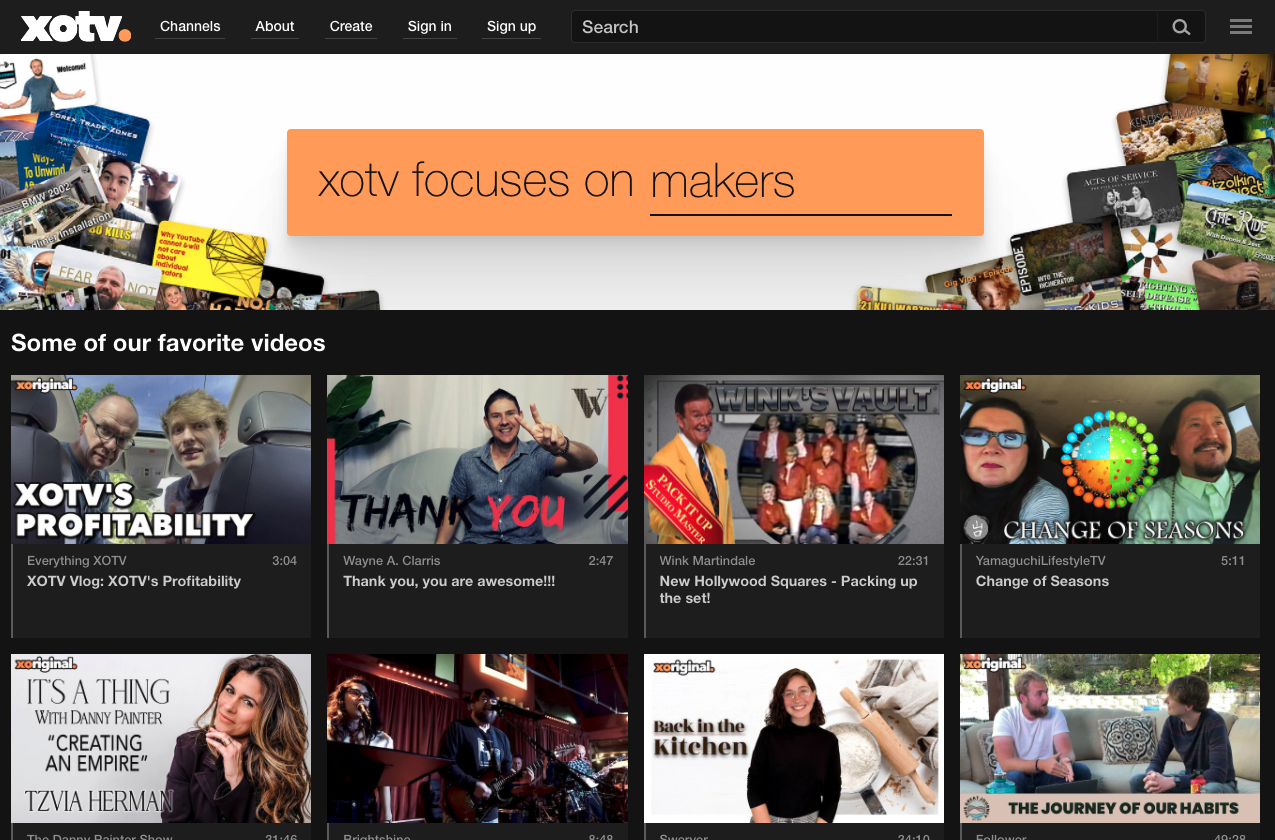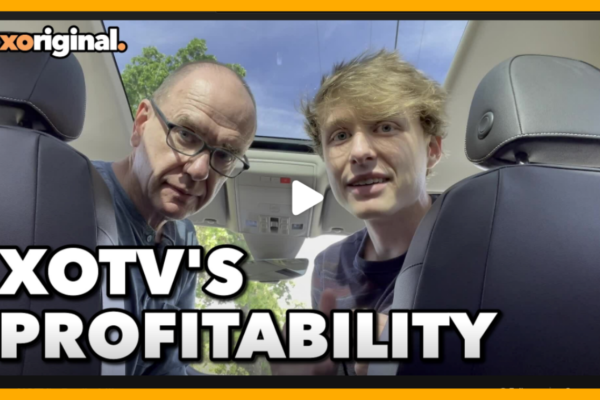New FIPP member XOTV on how its innovative new platform aims to bridge the gap between established and social media
Our members often tell us that one of the most important features of FIPP is the way that it provides a platform for established publishing companies to interact with innovative tech and media startups.
For the legacy companies it can offer insight on how new markets are emerging while creating opportunities for them to develop their businesses in the future.
For the startups it gives them access to companies who have years of experience of engaging with content consumers, and are authorities on issues like monetisation, data and product development.
It is a symbiotic relationship with significant benefits for both parties.
We are delighted then to welcome California-based startup XOTV to FIPP. The company is a creator-focused platform that claims it is unlike any other in that it promises to collaborate every step of the way on their content journey, rather than offering them tools and leaving them to their own devices.

In this interview the company’s co-founder, Franz Michael Ressel, outlines what XOTV is and what his ambitions are for the startup. He also explains the company’s unusual, and some might say innovative attitude towards data and privacy, and what it hopes to offer FIPP members and receive from them too.
For those who have yet to come across you can you explain what XOTV is?
XOTV is a privacy-focused, curated content platform that fosters community and radical growth with our creators. Right now, the majority of our creators focus on video, but we also support blogs, live streams, music, community forums, and even personal shops.
We wanted to fill the massive gap where creator support is supposed to be… too often creators are given tools and told, “good luck.”
And what media gap did you hope to fill when you began your journey?
This is a great question! When one of our co-founders, Franz Michael Ressel, gained around 100,000 subscribers on YouTube in 2017, the algorithm changed and resulted in his account losing views. The loss of views meant he was also losing considerable income. He went to YouTube HQ and learned that the platform only had ~10 creator managers for the millions of creators on the platform. From that point on, he realised most platforms don’t truly put the creator first. XOTV and our unique creator support systems were born just a few months later. (Although the technology behind the platform was built over the next two years that followed.) We wanted to fill the massive gap where creator support is supposed to be… too often creators are given tools and told, “good luck.” We wanted to give the tools and be with our creators every step of the way on their content journey.
Since launch you have grown quickly. What have been the key challenges you have faced scaling the business?
Creator support was one of the largest challenges. We initially thought that bringing creators would be the difficult part, but people are flocking to the platform because they see the advantages and support they receive from us. We just have to make sure we are growing to support them! We have developed a great internal creator support system – we are keeping up with and checking in with all of our creators regularly and rapidly expanding our creator support team.
You recently joined FIPP – why did you make this move? What do you see as the key benefits of FIPP?
We wanted to collaborate with FIPP on content – we think XOTV is a great place for FIPP to host their talks, conventions, and gatherings. We also want to connect with FIPP members. We believe we can provide a better way of publishing digital content – especially video and monetising it through our robust tools.
How do you feel more generally about the relationship between say FIPP members who are from a traditional media background and creatives who are social media natives? Should they work together more closely? And if so in what way? And does your platform enable this?
XOTV is a great platform to bridge the gap between legacy media and social media. When we were forming the company, we looked at legacy media and found the key aspects we wanted to keep (i.e. integrated sponsorships) and then looked at the technological advances of social media and combined them to get the best of both worlds.
We loved the idea of influencers and sponsored creators from social media and wanted to build a social sphere to certify them where they would be appreciated. The curation aspect of the platform is similar to legacy media as well. We know there are advantages and disadvantages to all forms of media, but we wanted to pool together the advantages of pre-existing platforms to create ours.
You shouldn’t have to sell your soul to use an online platform.
You have, for the industry, an unusual attitude towards data. Can you explain your position and how you came about to take this viewpoint?
We are a privacy-focused company, which means we only collect data that is absolutely necessary, and we don’t sell or give away that data to anyone. On most popular platforms, the companies make money from selling data – that’s why the sites remain “free” to the public. We argue that your data is your property. We don’t need it to stay afloat, that’s why we have monetised content. You shouldn’t have to sell your soul to use an online platform.
The founders have always been deep in the world of digital security – our CTO is a white hat hacker, our CEO was in the digital encryption world, starting, building and eventually selling an encryption start-up. They were deeply immersed in the data encryption world and brought that over to XOTV which inspired us to take a privacy first approach to data similar to a platform like DuckDuckGo.
The momentum we received from our creators in 2020 will propel us into 2021 and help us build a stronger creator economy.
2020 was a tumultuous year for the media as they attempted to tweak business models to accommodate Covid. How was it for you? And how do you feel 2021 will be different?
2020 was a difficult year for businesses globally. On our end, it provided us with some of our most motivated creators. Our platform is for driven people who want to make a living from their creative work and for a large group of our creators, this means working from home. When Covid hit, it erased most distractions and helped those creators hone their craft. From a business standpoint, we are run 100 per cent remotely – we have employees in the United States, Germany, Scotland and South Africa right now. We feel fortunate that Covid did not change too many of our internal operations.
The momentum we received from our creators in 2020 will propel us into 2021 and help us build a stronger creator economy.
And what plans do you have for the future?
Our goal has always been to reach our cap of 10,000 creators on XOTV. As we build towards our goal, we are improving our support systems, sponsorship opportunities and community offerings to make XOTV even better for our creators and the communities they foster.
We are also always refining our distribution systems. Working with major companies to promote our content. We are always working on leading-edge technology that will help us stay ahead of the curve in the content marketplace. If you’re interested in staying up to date on all things XOTV, follow our Everything XOTV vlog, new episodes are released every Monday!








